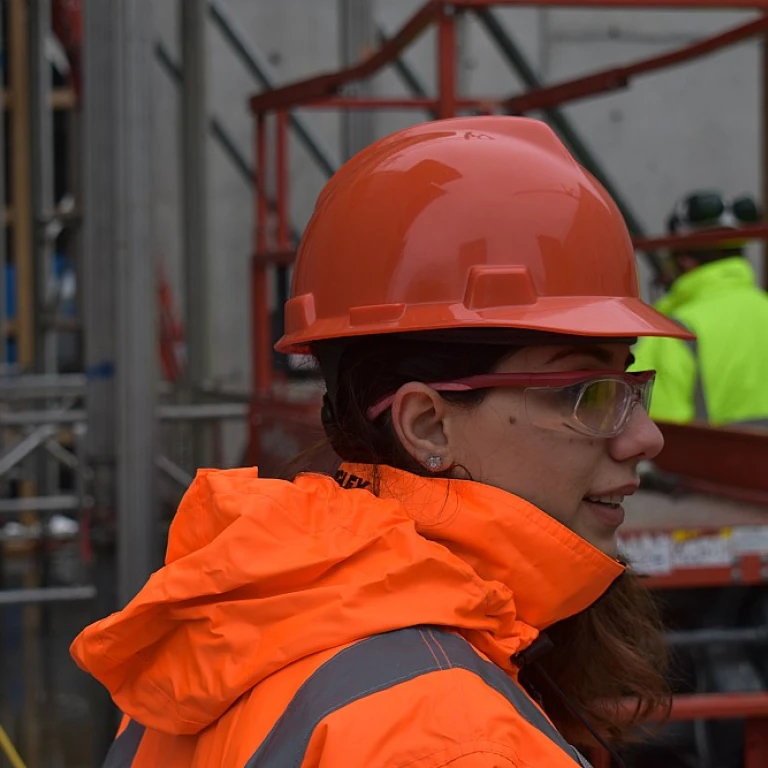Understanding Personalized HR Communication
The Essence of Individualized Human Resources Dialogue
In today's rapidly evolving workplace, the approach to communication within human resources has become increasingly strategic, and personalization has emerged as a crucial component. But what does it mean to truly make HR communication personal?
At its core, personalized HR communication involves tailoring messages to meet the unique needs and preferences of each employee or group of employees. It goes beyond generic updates and mass emails, delving into the intricacies of individual situations, aspirations, and roles within the organization. This approach acknowledges that employees are not just numbers; they are diverse individuals with varied backgrounds, interests, and motivations.
By focusing on what makes each employee unique, organizations can craft messages that resonate more deeply, fostering a greater sense of belonging and engagement. This personalization not only enhances the effectiveness of communication but also bolsters the overall employee experience. As hinted in the upcoming sections, it also leads to numerous benefits for both employees and the organization at large.
Personalization in HR communication requires a keen understanding of the workforce, which can be achieved through data analytics, surveys, and direct feedback. Leveraging technology and data, companies can gain insights into employee preferences, enabling more nuanced communications that align with their expectations and career trajectories.
Transitioning into learning about the tangible outcomes of this approach, one real-life example highlighted later reveals how personalized communication efforts have significantly boosted employee satisfaction and retention rates.
The journey to mastering individualized HR dialogue continues with exploring the specific advantages that personalized communication offers to employees, crafting effective messaging strategies, and identifying the right tools and channels for optimal outcomes. Through practical examples and a look to the future, the importance of tailored communication will become increasingly apparent.
Benefits of Personalized Communication for Employees
Enhancing Employee Experience Through Tailored Communication
In today's dynamic workplace, personalized communication has emerged as a cornerstone for enhancing employee experience and fostering a more engaged workforce. By tailoring messages to individual needs and preferences, companies can create a more inclusive and supportive environment that resonates with employees on a personal level.
One of the primary benefits of personalized communication is the boost in employee morale and satisfaction. When employees feel that their unique contributions and challenges are recognized, they are more likely to feel valued and motivated. This sense of appreciation not only enhances their overall job satisfaction but also encourages them to invest more in their roles.
Moreover, personalized communication can significantly improve employee retention. By addressing specific concerns and providing relevant information, organizations can reduce the feeling of disconnect that often leads to turnover. Employees are more likely to stay with a company that understands and meets their individual needs, creating a more stable and committed workforce.
Another advantage is the increased efficiency in internal communication. Tailored messages ensure that employees receive the information that is most pertinent to them, reducing information overload and enhancing productivity. This targeted approach helps employees focus on what truly matters, enabling them to perform their tasks more effectively.
As we explore further into crafting effective messages and the tools available for personalization, it's clear that personalized HR communication is not just a trend but a strategic necessity for modern organizations. By leveraging these benefits, companies can create a workplace culture that is both engaging and empowering for all employees.
Crafting Effective Messages
Enhancing Messages with Personalized Content
Creating effective messages tailored to each employee plays a crucial role in personalized HR communication. The objective is to make every interaction feel as if it directly addresses the individual, reflecting their unique needs and circumstances. To achieve this, HR professionals must move beyond generic announcements and embrace a more nuanced approach.
One essential strategy is segmenting your audience based on demographic data, such as their role, department, or level within the organization. By understanding these segments, you can craft messages that are more relevant and relatable. For instance, motivational content might resonate differently with new hires compared to long-serving employees.
Another key factor in crafting effective messages is to leverage data analytics to pinpoint specific preferences and pain points. Personalized HR communication is not solely about addressing the employee by their name; it also involves recognizing their career goals, performance history, and even their preferred communication channels. This not only boosts engagement but also builds trust, as employees feel seen and valued.
Incorporating feedback mechanisms is also crucial. Encourage employees to provide input on the kind of information they find valuable and how they prefer to receive it. This continuous dialogue ensures that your communication strategies remain agile and responsive to changing needs.
Finally, consider utilizing technology platforms that facilitate the automation of personalization. These tools help in customizing messages at scale while maintaining a personal touch. For more insights on how technology aids effective HR communication, especially in hybrid work environments, refer to
effective HR communication for hybrid work success.
In summary, crafting effective personalized messages involves a deep understanding of your audience, leveraging analytics, encouraging feedback, and embracing technology. This focused approach to communication not only enhances employee engagement but also strengthens the overall organizational culture.
Harnessing Technology for Personalization
In today's digital-first world, personalized human resources communication relies heavily on the strategic use of tools and channels. Crafting effective and individualized messages is essential, but without the right platforms to deliver these messages, personalization efforts may fall short. By leveraging the latest technology, HR professionals can transform their communication strategies to be more impactful and engaging.
The Role of Analytics
Analytics play a crucial part in personalizing HR communication. By analyzing employee data, HR departments gain insights into individual preferences, needs, and behaviors. This information allows for the segmentation of employees into targeted groups, ensuring communication is relevant and timely. Data-driven insights are instrumental in personalizing newsletters, training updates, and benefits information, providing employees with content that resonates with them individually.
Choosing the Right Channels
Selecting the appropriate channels for communication is equally important. While email remains a staple, exploring alternative platforms such as Slack, Microsoft Teams, or even mobile apps can enhance the personalization experience. These platforms allow for real-time communication and are adaptable to hybrid or remote work models, making them invaluable tools for ensuring that personalized messages reach employees efficiently and effectively.
Automation Tools and Software
Utilizing automation tools can significantly streamline personalized communication efforts. With the help of software solutions, HR teams can automate routine tasks and personalize at scale, from sending onboarding messages to distributing performance review results. These tools also facilitate continuous engagement, ensuring that employees receive consistent, customized updates based on their roles and career aspirations.
Collaboration with Internal Departments
Finally, collaboration with other internal departments such as IT and marketing can amplify personalized HR communication. By aligning with the IT department, HR can ensure the integration of advanced communication tools, while leveraging marketing expertise can improve message crafting and delivery strategies. Both collaborations ensure that HR communication strategies are well-rounded and impactful.
Real-Life Success Stories
Case Studies Illustrating Personalized HR Communication Success
One of the best ways to understand the impact of personalized HR communication is through real-life examples. Companies around the world are evolving their strategies to include more personalized approaches, resulting in a plethora of success stories that demonstrate its transformative power.
A prominent example comes from a multinational tech company that strategically customized its onboarding process based on individual employee preferences and roles. By creating personalized welcome packages and tailored training modules, they significantly increased new hire engagement and reduced turnover within the first year of employment. This approach not only made new employees feel valued but also aligned them with the company's culture from the get-go.
Another illustrative case involves a healthcare organization that shifted from generic, company-wide memos to targeted communications specific to each department's needs and challenges. By implementing survey tools to gather feedback on communication styles, they crafted messages that were both relevant and actionable for different employee groups. This led to improved information retention and a noticeable uptick in employee satisfaction scores.
A retail chain made headlines by implementing an innovative employee recognition program. By using data analytics, they personalized accolades based on performance metrics and personal interests, ensuring that recognitions were meaningful and resonated with recipients. This personalized approach not only boosted morale but also increased productivity across their outlets.
These case studies underscore the potential of personalized communication to fundamentally change the dynamics of employee interaction within an organization. By adopting adaptable strategies that resonate with individual employees, companies are witnessing remarkable improvements in both employee engagement and organizational success.
As we look to the future, customized communication strategies will continue to gain traction. Organizations are quickly realizing that the benefits far outweigh the efforts involved in personalizing HR communication.
Future of HR Communication
The Evolution of Personalized HR Strategies
As we look forward to the horizon of human resources and its evolving landscape, personalized communication is expected to play an increasingly pivotal role in the way organizations interact with their employees. The focus on individual experiences and tailored messaging, as discussed earlier, is reshaping HR protocol, ensuring more meaningful and impactful interactions within the workforce.
The future promises the integration of advanced technologies such as artificial intelligence and machine learning, which will enable even more precise and customized communication plans. These tools will analyze employee behavior and preferences to offer insights that HR teams can leverage to create more efficient and individual-specific engagement strategies.
Furthermore, the evolution doesn't stop at technology. There's a growing emphasis on merging data-driven approaches with empathetic communication—balancing the delicate interplay between human intuition and technological analytics. This synthesis allows for not only a better understanding of employee needs but also the fostering of a more inclusive and responsive workplace culture.
Challenges remain, such as maintaining data privacy and overcoming resistance to increased transparency. However, as companies invest in training and resources to harness these advancements, the potential for transformational HR experiences becomes a tangible goal. The journey towards personalized HR communication is ongoing, and those organizations that pioneer these efforts are likely to see heightened employee satisfaction and improved organizational performance.
This forward-thinking perspective aligns with emerging trends in HR communication, painting a picture of a future where personalization continues to be a key driver for engagement and workplace excellence.








